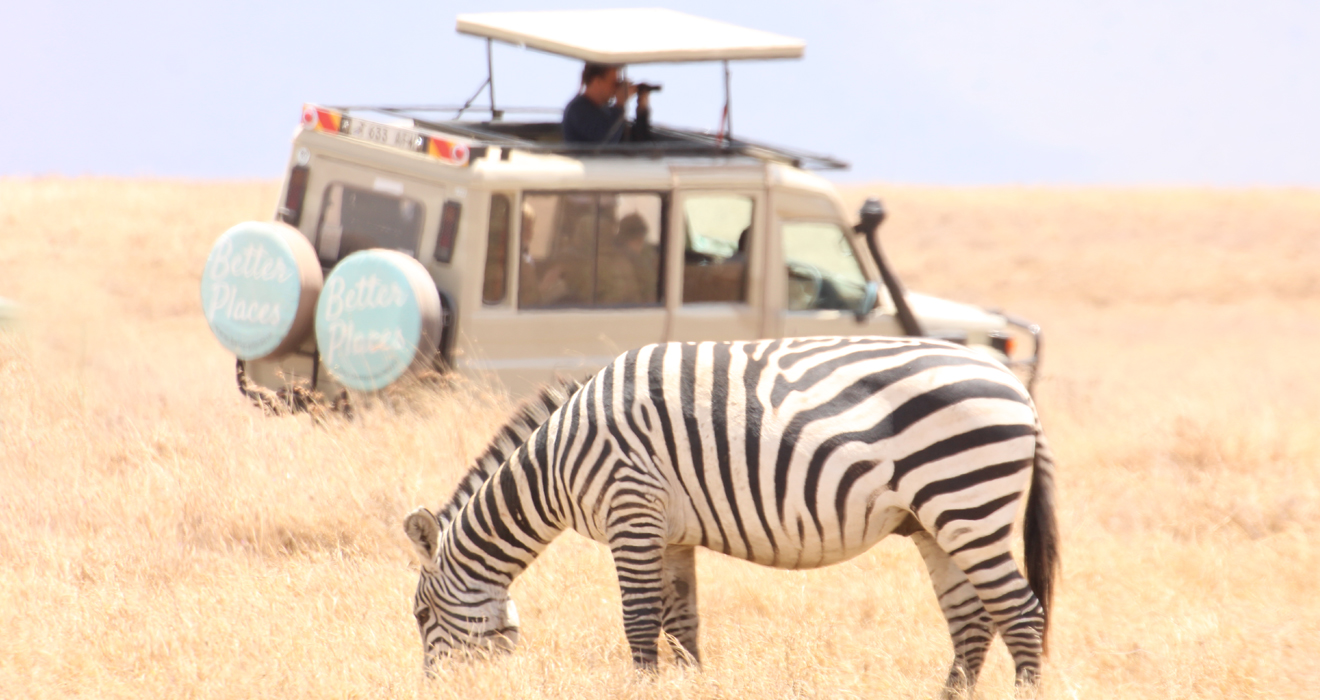Kenya | Uganda | Tanzania | Zambia Safaris
Mijikenda, Shella Road, Malindi, Kenya.
Kenya | Uganda | Tanzania | Zambia Safaris
Mijikenda, Shella Road, Malindi, Kenya.

The Serengeti National Park is Africa's most famous. Renowned for its incredible concentrations of predators and the Great Serengeti Migration of two million wildebeest, a Serengeti safari is guaranteed to be exceptional. The endless grassy plains (Serengeti in Maasai) are the richest grazing grounds on the continent, and therefore home to the largest herds and the highest concentrations of predators on the planet.
DAY 1: Arusha – Tarangire National Park
After a short briefing in the morning, you will be taken to the Tarangire National Park. The park with its endless tree savannah including the impressive baobab trees and seasonal marshes, is also home to the largest elephant herds in northern Tanzania. In addition to elephants you are also likely to spot giraffes, buffaloes, lions, zebras, gnus and other types of antelopes and gazelles. Upon arrival at the park, your driver will open the roof of the vehicle and the extensive wildlife viewing will begin. Lunch will be taken at a picnic spot and in the afternoon you will get to see more of this amazing and beautiful park. In the late afternoon you will arrive at the Lake Burunge Tented Camp, located outside of the park for your overnight stay.
Lunch; Dinner
DAY 2: Tarangire Area – Serengeti National Park
After breakfast you will depart towards the Rift Valley, passing through Mto Wa Mbu and Karatu, in the cooler regions of the crater highlands. You will enter the Ngorongoro Conservation Area and stop for a short look into the crater from a viewing platform. Continuing your journey around the crater, you will descend the other side, enjoying your free “African massage” on the bumpy road, passing Maasai villages on your way to the Serengeti National Park. At the Naabi Hill entrance gate you can walk to a viewpoint with spectacular views across the plains of the Serengeti savannah. You will then continue towards the Seronera Area in the central part of the Serengeti. The park offers a multitude of wildlife including the “Big Five” – lion, elephant, buffalo, rhino and leopard. Late in the afternoon you will arrive at the Kati Kati Tented Camp. The camp is in a secluded area, in the heart of the bush and the stars at night are breathtaking. Lunch will be enjoyed en-route.
Breakfast; Lunch; Dinner.
DAY 3: Serengeti National Park
Following breakfast, you will spend the whole day on a game drive in the Serengeti National Park and have lunch at a picnic spot en-route. Depending upon the time of year, you might even have the chance to witness the great migration with hundred thousands of wildebeests, zebras and Thompson gazelles. During the small rainy season in October and November, you will typically see these herds moving from the Kenyan Masai Mara through the northwest of the Serengeti to the plains in the south. After the great rainy season in April, May and June, the herds slowly travel back through the western and north-western part of the Serengeti. With fluctuations in rainfall, this timetable can of course change, resulting in the animals migrating during different times and routes. Your guide will try his outmost to find the animals and will make sure that you can see the animals from the best spot in the national park. Naturally, the migration also attracts predators and with luck you might see a kill in action. You will spend another night at the Kati Kati Tented Camp.
Breakfast; Lunch; Dinner
Attention: Please note, that should you travel between the beginning of January and mid-March, you will stay at the Kati Kati Ndutu Tented Camp. This camp is also situated in the Serengeti National Park but closer to the border of the Ngorongoro Conservation Area in the Ndutu Area.
Staying at a camp in the Ndutu Area during this time increases your chances of seeing the famous migration as the herds can either be on the Serengeti or Ngorongoro side.
DAY 4: Serengeti National Park – Ngorongoro Crater – Karatu
After breakfast at daybreak, you will start early on your outward journey from the Serengeti back to the Ngorongoro Conservation Area, leaving behind the beautiful Seronera Valley. As predators are livelier in the cooler hours of the day, you might even see them in action. Lunch will be taken en-route at a designated picnic spot. On reaching the crater’s edge, the 19 km diameter caldera opens up before you in all its stunning glory and you will descend into the crater on an adventurous trail. This World Heritage Site is seasonally home to over 25,000 animals in including a wide variety of birds, hyenas and the “Big Five” – lion, elephant, buffalo, rhino and leopard. Exiting the crater on a different ascent road, you will drive to Karatu, where you will spend the night at the Ngorongoro Farm House, a former working farm.
Breakfast; Lunch; Dinner
DAY 5: Karatu – Arusha
After a relaxing breakfast, you will return to Arusha, arriving around noon. Those who wish to combine this safari with a trip to Zanzibar can take a flight from the local Arusha Airport or Kilimanjaro International Airport. Lunch will be taken en-route.
Breakfast; Lunch
Lodge safari according to the itinerary
Transportation in a 4×4 safari vehicle
Professional, English-speaking guide
Overnight accommodation according to the itinerary
Meals according to the itinerary
Mineral water
All mentioned activities
All national park fees
Flying Doctors insurance (AMREF) during the safari
Flights
Optional activities
Alcoholic and soft drinks
Tips
Visa fees
Travel insurance








